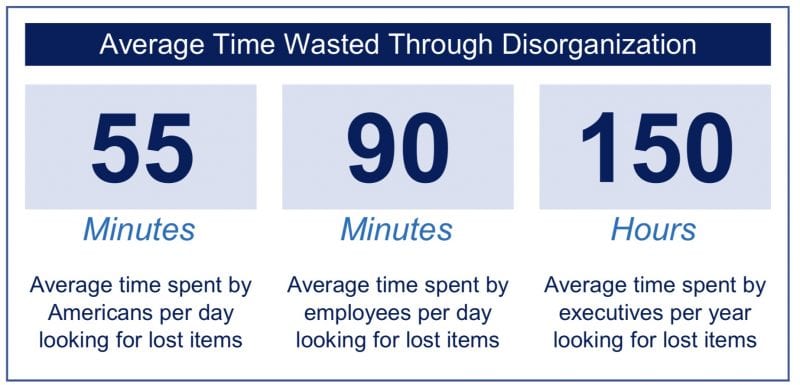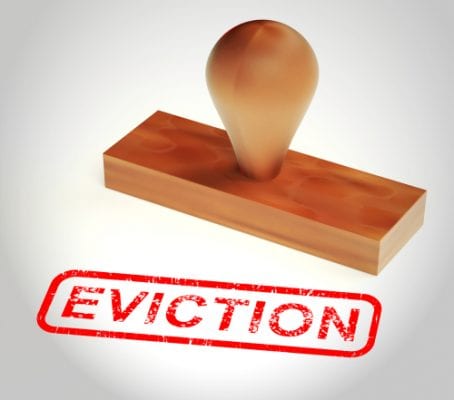
As a landlord, you are no stranger to taking on many responsibilities at once. In fact, you probably already know that if you do not handle them properly, you could find yourself stressed out, facing financial trouble, or dealing with a lawsuit. So, it is crucial for you to both prevent potential issues and fix them once they have occurred. Join us as we examine some of the most common problems landlords face as well as tips on how to prevent and improve them.
6 Common Problems Landlords Face
- High Turnover Rates – High tenant turnover can kill your cash flow fast. Losing a tenant requires you to spend time and money advertising, showing, running background checks, and doing the necessary administrative work to get one tenant out and another one in. On top of that, your property does not generate any money for you while it’s vacant. So, if you spend a lot of time trying to find a new tenant, you could find yourself in severe financial trouble.
- Late Rent Payments – Constantly dealing with tenants who do not pay on time can be incredibly frustrating, especially if they are repeat offenders. Also, waiting on tenants to pay could be financially draining for landlords.
- Legal Troubles – Learning all the laws that apply to landlords may seem like an overwhelming task, but you must do it to avoid legal trouble. So, take the time to study the federal and state laws that apply to you. Also, don’t forget to look up your local laws, too, as some landlords must adhere to different rules based on the specific city.
- Staying Organized – Landlords deal with lots of paperwork. Therefore, if you are not careful, that paperwork can quickly become disorganized. Not only can this cause you daily stress, but you could also find yourself in legal trouble if you lose an important document!
- Frequent Evictions – An eviction is a stressful and costly process. Therefore, doing all you can to prevent the blow to your financial and mental well-being that frequent evictions cause is vital.
- Excessive Stress Over Property Management Responsibilities – Property management is a critical part of being a landlord, but it certainly is not easy. You must screen tenants, collect rent, deal with complaints, keep your tenants happy, and so much more. That said, all of these tasks can take a toll on any landlord, especially those who would rather not deal with stressful property management tasks.
The Best Ways to Reduce Tenant Turnover
One of the worst problems landlords face is having a vacant property. The most successful landlords or property management firms have low vacancy rates. Not only does a vacancy mean no rental income is coming in, but it is also actually costing money to advertise and prepare for occupancy. The best way to combat this is to have some reliable procedures in place. To understand why you may struggle with keeping your rental properties below, consider these tips below.
- Understanding Why Your Tenants Do Not Renew
- Make Regular Improvements
- Review Rental Increases Carefully
- Attract Tenants Who Are a Good Fit
Understanding Why Your Tenants Do Not Renew
Why do your tenants want to leave? The answer to that question offers a wealth of information. Many tenants leave due to broken maintenance promises, unreasonable rent hikes, or lack of amenities. Asking for feedback via a short move out survey may avoid the same situation in the future. In some cases, it may be possible to convince the tenant to stay; if not, at least you have gained valuable insight. Additionally, sending a short survey a semi-annually may prevent an unhappy situation from escalating. So, it is worth the time to check in with your tenants now and then.
Make Regular Improvements
Constant maintenance issues are draining to both you and the tenant. For the tenant, this can be very frustrating to have their requests fall by the wayside. Therefore, always take maintenance concerns seriously and keep communication lines open. While it may be tempting to forego repairs to maximize profit, consider the long-term implications. When occupants see that the landlord recognizes their needs and invests in upkeep on the property, they are more apt to both take care of it and to remain a paying tenant. In many areas, the rental market is only getting more competitive; small improvements and regular maintenance can make all the difference in whether your property is occupied or vacant.
Review Rental Increases Carefully
Finding a balance between maximizing profit and accommodating tenants are problems landlords face. When considering rental increase, the local market needs to dictate when and how much of an increase is possible. That said, thoroughly research the local area compared to the amenities and features of your unit. Typically, fair practice allows for up to a 3% increase every year or two. Carefully consider the factors below to determine what, if any, increase is warranted:
Is a Rent Increase a Good Idea?
- Does the neighborhood have cheaper comparable properties on the market?
- What is the tenant’s financial situation? Can they afford an increase?
- Is it likely you will fill the vacancy quickly of the tenants leave?
- How much will turnover and marketing costs be to refill the unit?
- Will the proposed rent increaser make up for these vacancy costs?
Attract Tenants Who Are a Good Fit
Having the right tenant from the start means a better tenant in the long run. However, how do you make sure you find the right tenant? The answer comes down to thorough screening. In addition to checking creditworthiness, income, criminal background, and rental history, take the time to talk to the tenant and their references. This will give you a complete picture of whether the tenant is the best fit for your rental property.
Best Way to Deal with Late Rent Payments
Continually dealing with tenants who do not pay on time can be incredibly frustrating, especially if they’re repeat offenders. If that situation sounds all too familiar, consider trying these ideas to improve your chances of consistently collecting rent on time:
- Strictly enforce your rent collection rules
- Follow up with tenants as many times as necessary to collect rent
- Screen tenants, thoroughly so you can choose those who are likely to pay on time every month
Tip: For more ideas on dealing with problems landlords face and how to get your tenants to pay rent on time, check out this blog post.
 Navigating Legal Trouble as a Landlord
Navigating Legal Trouble as a Landlord
Learning all of the laws that apply to landlords may seem like an overwhelming task. However, it would help if you did it to avoid legal issues. Take the time to study the federal and state laws that apply to you.
Additionally, do not forget to look up your local laws, too – some landlords must adhere to different rules based on their specific city. Although learning laws can feel like a daunting task, you are not in it alone! If you are struggling, consider joining a local landlord association so you can network and get the support you need.
5 Steps to Becoming an Organized Landlord
Statistics show that an average American spends around 55 minutes per day looking for lost items. Additionally, the average office employee spends 1.5 hours a day looking for lost information. A typical executive spends nearly 150 hours a year searching for lost data. As a landlord, a lot of documents and information will bombard you daily. Therefore, to maintain an efficient business, that information must be easily accessible and organized. Follow these simple tips below to boost your organization skills, and in turn, your productivity.

- Document Everything – Keep track of all email, text, and written correspondence, including lease contracts, addendums, and renewals. Use both electronic and hard copy means for secure storage that is easily accessible when needed. Doing so will ensure these documents will be at your fingertips should any disputes arise.
- Keep Each Property File Separate – One big file does not work if you have multiple properties. Create a dedicated filing system for each rental unit or property and maintain the same organizational rules across all files.
- Digital is The Way to Go – Retaining a physical copy of any vital document is essential. However, a digital format is far easier to access and maintain. Additionally, digital records protect documents in the event the physical ones are destroyed or lost.
- Organize Yourself with a Calendar – Organizing yourself is just as important as organizing your files. Landlords can quickly become bogged down by showings, inspections, appointments, and meetings. So, create a paper or digital calendar for yourself and set up alerts, so you never miss a commitment.
- Hire a Professional – A professional, experienced, and established property management company can alleviate any disorganization issues you might face. In addition to leasing, marketing, maintenance, and accounting services, a property manager can handle any document need a landlord faces.
 5 Tips for Screening Tenants Effectively
5 Tips for Screening Tenants Effectively
Have you ever had to deal with nightmare tenants? They don’t pay their rent, disrupt the peace and quiet of your property, and provoke claims from other tenants. Additionally, troublesome tenants cause expensive damage. The best way to avoid the headache of nightmare tenants is to avoid them in the first place. Check out these tips below to make sure you are renting to the right tenants.
- Decide What Matters to You – Nobody is perfect. So, what’s your minimum credit score requirement? Will you consider tenants with any criminal record? If so, where do you draw the line? What minimum income are you looking for? Once you set these standards, it’s easy to eliminate any applicants who don’t meet them.
- Utilize Technology for Background Checks – High-tech solutions help to provide you with the answers you need. Invest in the technology required to run criminal background checks on your applicants, including checking them off against the terrorist watch list, sex offender lists, FBI Most Wanted list, and other criminal databases.
- Treat Every Applicant the Same – Once you create a list of qualifications, stick to them. Every applicant must provide the same information and be subject to the same criteria, or landlords risk a Fair Housing Law complaint.
- A Few Extra Phone Calls Are Worth It – Take the time to call and speak with references and former landlords. Former landlords are far more likely to tell you the unvarnished truth since they no longer have any vested interest in this tenant. Especially if you see a lot of movement from one property to another, take a few minutes to make these calls.
- Pay Attention to Your Instincts – Pay attention to your first impression. When you go out of your way to treat all applicants the same, you know that you have done your job fairly. Once you find the tenant who breezes through your background check protocols, you can feel confident that you are making the right choice.
 How to Avoid Frequent Evictions
How to Avoid Frequent Evictions
An eviction can be a stressful, costly process. Instead of dealing with the blow to your financial and mental well-being that frequent evictions can cause, try these three proactive ways to avoid them:
- Improve Tenant Screening
- Implement Payment Plans
- Build Better Landlord-Tenant Relationships
Improve Tenant Screening
One of the best ways to avoid common problems landlords face such as evictions, is to screen all tenants thoroughly before placing them in your property. That way, you can feel confident knowing that each tenant you rent to is unlikely to be evicted. Here are a few actions you must take as part of an effective screening process:
- Check the tenant’s credit.
- Perform a criminal background check.
- Get references from a tenant’s previous landlords.
Tip: For more detailed screening advice, check out our recent blog post entitled 9 Red Flags to Watch Out for in Potential Tenants.
Implement Payment Plans
Even your best tenants may unexpectedly fall on difficult times. That’s when you may want to consider creating a payment plan for them so they can pay their rent. After all, if they’ll adhere to your payment plan rules, you may find keeping them around to be more beneficial than dealing with the costly eviction process and having a vacant property.
Just make sure you do not lower the rent amount owed when you create your payment plan. Otherwise, word could get out that you are willing to reduce the required monthly rent amount, causing your other tenants to request discounted rates.
Build Better Landlord-Tenant Relationships
If you do not communicate with your tenants consistently, it’ll be easy for them to avoid you and stop paying rent without feeling bad about it. So, make sure you reach out to tenants regularly (without being intrusive, of course) and listen to their feedback. That way, you can be more proactive about preventing problems instead of always being reactive when things have already gone bad.
How to Reduce Stress Over Property Management Responsibilities
Property management is a critical part of being a landlord, but it certainly is not easy. You must screen tenants, collect rent, deal with complaints, keep your tenants happy, and more. All these tasks can take a toll on any landlord, especially those who would rather not deal with stressful property management tasks. If that sounds like you, consider hiring a professional property management team is the best solution for a stress-free investment experience.

Trusting a knowledgeable property management firm with the day to day tasks of your property will eliminate many of the problems landlords face. Contact Bay Property Management Group today to find out how our leasing, maintenance, rent collections, evictions, and accounting services can help you!


 Navigating Legal Trouble as a Landlord
Navigating Legal Trouble as a Landlord 5 Tips for Screening Tenants Effectively
5 Tips for Screening Tenants Effectively How to Avoid Frequent Evictions
How to Avoid Frequent Evictions